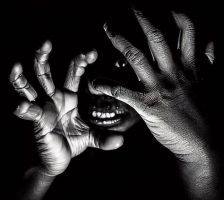Psychedelic therapy for PTSD
Psychedelic therapy with psilocybin and MDMA is effective in the treatment of Post Traumatic Stress Disorder (PTSD), according to various studies. Psilocybin is the psychoactive substance in magic mushrooms and has a mind-altering effect on the brain. MDMA is a substance that activates the release of oxytocin and serotonin, which evokes positive emotions and feelings of safety and connection. Both substances can help reduce the fear and pain responses associated with PTSD. During the session, the participant can often enter a deep state of consciousness, allowing him/her to “break free” from the traumatic experience. The available guidance can then help to process the trauma and guide it to a state of emotional healing and growth.
Psilocybin or MDMA for PTSD
Most psychologists choose MDMA over psilocybin to treat PTSD because it is easier to manage. MDMA affects the reward system and mainly provides feelings of well-being, euphoria and connection. The person using the MDMA remains positive and emotionally stable during the session and is easier for the therapist to deal with.
Guiding psilocybin therapy to treat PTSD is more difficult for the novice practitioner because it is less predictable. A psilocybin session also requires some more preparation, such as balancing neurotransmitters and informative preparation.
Due to the different effects of MDMA and psilocybin, they can also be used as needed. Some people with PTSD might benefit more from psilocybin and others from MDMA.
When do you choose MDMA or psilocybin?
Psilocybin therapy
Psilocybin therapy may provide a benefit in the treatment of PTSD. Especially if depression also plays a role, psilocybin can be more effective. Psilocybin therapy can help to reinterpret the patient's emotions and thoughts and can facilitate the processing of traumatic experiences.
Psilocybin can help to release emotional blockages so that the session becomes an outlet for strong emotions where a state of satisfaction and connection provides a safe feeling.
With psilocybin therapy, during the peak of the session, there is also room for an experience that cannot be expressed in words. This is especially useful for people who cannot cope with the trauma through thoughts and conversations.
Another benefit of psilocybin is the hallucinations. During some sessions, insights may arise from the visual effects shown.
MDMA therapy
You can choose MDMA therapy if you feel that there is a blockage to talking and/or thinking about the trauma. Normally, people with PTSD have difficulty talking about traumatic experiences because they experience fear, stress, and anxiety. MDMA can reduce these symptoms, making them more emotionally open to discussing their experiences. It also ensures that the limbic system works better with the frontal part (responsible for language and logic). This makes it easier for patients to gain new insights and integrate emotional scars into their usual daily experiences. All of this can lead to more successful therapy and fewer psychological problems in people suffering from PTSD.
Another reason to choose an MDMA session is that people with PTSD are relatively more likely to be afraid of the visual effects of psilocybin. During some psilocybin sessions there may be images of the trauma that are experienced as okay or unpleasant.







